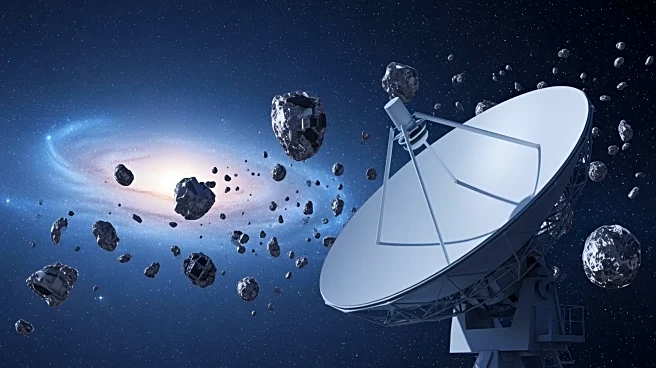What's Happening?
Australian miners discovered burning space debris near Newman, Western Australia, believed to be part of a Chinese Jielong 3-stage rocket. The debris, identified as a twisted cylinder of blackened metal, was found smoldering on October 18, 2025. Initial
investigations by the Australian Space Agency and the Department of Fire and Emergency Services suggest the object is a composite-overwrapped pressure vessel (COPV) used in rockets. Space archaeologist Dr. Alice Gorman indicated the debris might be from the fourth stage of the Chinese Jielong rocket. Despite the findings, Chinese authorities have not confirmed the debris's origin.
Why It's Important?
The discovery of space debris in Australia highlights the ongoing challenges of managing space waste and its potential impact on terrestrial environments. Such incidents underscore the need for international cooperation in space debris tracking and management. The presence of foreign rocket parts on land raises concerns about safety and environmental risks, prompting scrutiny of space agencies' protocols for debris re-entry. This event may influence future policies on space debris mitigation and international agreements on space exploration responsibilities.
What's Next?
Australian authorities are likely to continue their investigation to confirm the debris's origin and assess any potential risks. The incident may prompt discussions between Australia and China regarding space debris management and accountability. Additionally, international space agencies might review their debris tracking systems to prevent similar occurrences. The event could lead to increased advocacy for stricter regulations on space debris and enhanced collaboration on global space safety standards.
Beyond the Headlines
The incident raises ethical questions about the responsibility of space-faring nations to manage debris and protect other countries from potential harm. It also highlights the growing issue of space pollution and its implications for future space exploration. As space activities increase, the need for comprehensive international policies on debris management becomes more pressing, potentially influencing long-term space governance frameworks.















